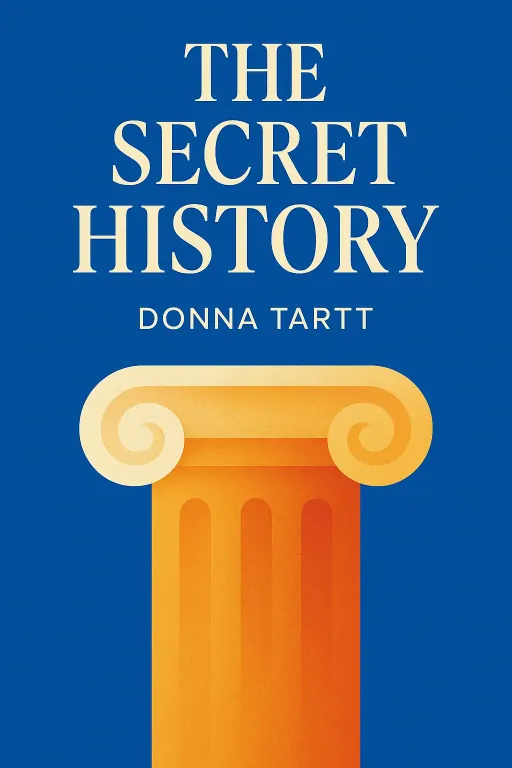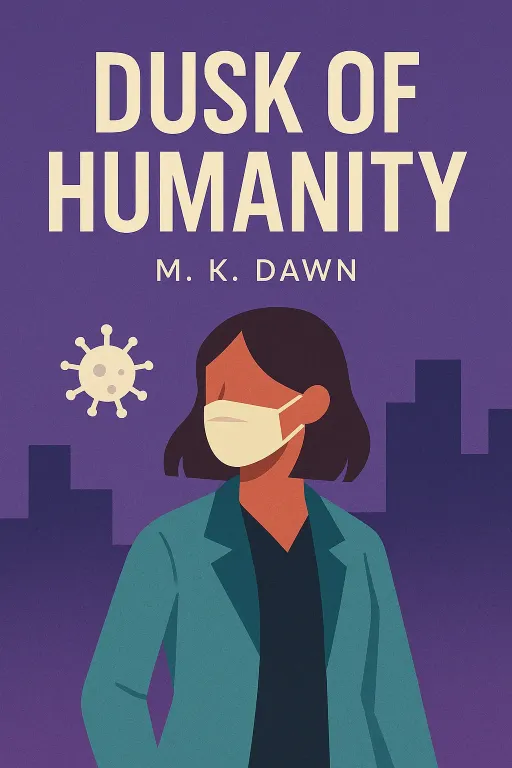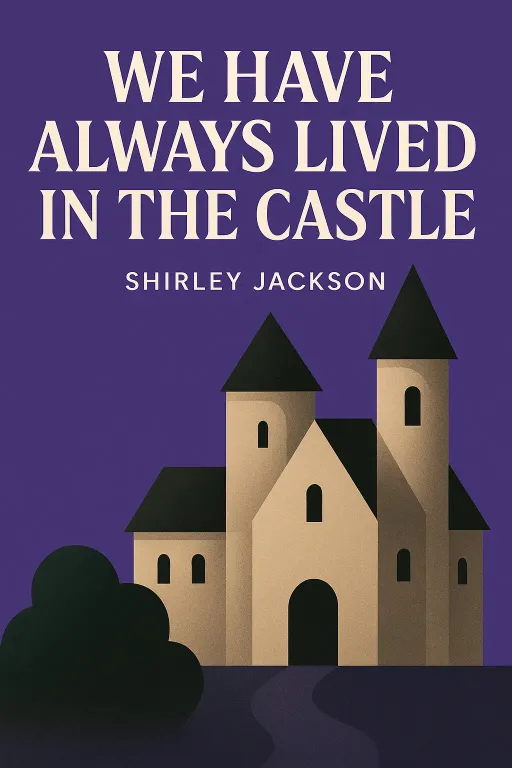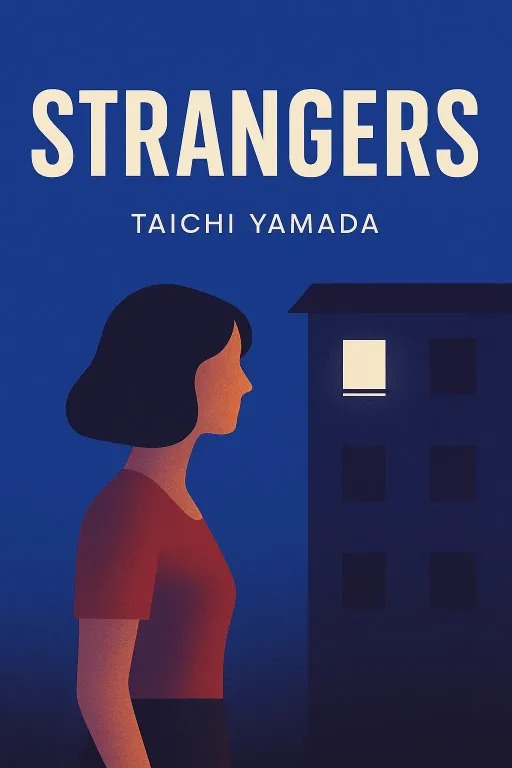
The Secret History
9 minIntroduction
Narrator: What if the most defining moment of your life was a secret you could never tell? A secret born from a single, horrific act that bound you and your closest friends together in a conspiracy of silence. This is the chilling premise that opens Donna Tartt's masterpiece, The Secret History. The story begins not with a question of who did it, but with a stark confession: a group of elite college students has murdered one of their own, and the narrator was one of them. The novel then rewinds, forcing us to ask a far more unsettling question: why?
The Seduction of the Picturesque
Key Insight 1
Narrator: The story is told through the eyes of Richard Papen, a young man from a drab, working-class background in California. He is driven by what he calls a "morbid longing for the picturesque at all costs." This desire to escape his mundane reality leads him to Hampden, an exclusive and idyllic college in Vermont. There, he becomes fascinated by a small, insular group of classics students who seem to be living the very aesthetic life he craves.
This clique is composed of the brilliant and intimidating Henry Winter; the flamboyant and anxious Francis Abernathy; the charming but oafish Edmund "Bunny" Corcoran; and the ethereal, inseparable twins, Charles and Camilla Macaulay. They are all under the tutelage of the charismatic and enigmatic professor, Julian Morrow. Julian teaches Greek, but more than that, he teaches a way of life—one that values beauty, intellect, and a detachment from the vulgarity of the modern world. To Richard, they are everything he is not: sophisticated, wealthy, and living a life of profound meaning. Desperate to join them, Richard fabricates a more glamorous personal history, successfully convincing Julian to accept him into their exclusive circle. He soon learns, however, that the picturesque world he so desperately wanted to enter has a dark and dangerous foundation.
The Pursuit of the Sublime Turns Deadly
Key Insight 2
Narrator: At the heart of the group's intellectual life is Julian Morrow's philosophy, which romanticizes the irrational and the terrifying aspects of the ancient world. He teaches his students that true beauty is inseparable from terror. "Whatever we call beautiful," he tells them, "we quiver before it." Inspired by this, the group, led by Henry, becomes obsessed with achieving a genuine Dionysian bacchanal—a state of ecstatic frenzy where the mortal self is lost and one is possessed by a divine madness.
After several failed attempts using fasting, drugs, and prayer, they finally succeed one fateful night at Francis's country house. In their ritualistic trance, they lose all sense of self and time. However, when they regain consciousness, they discover their intellectual experiment has had a horrific, real-world consequence. Henry recounts how, in the frenzy, he attacked what he thought was a beast, only to realize later that he had killed a local farmer. This accidental murder becomes the group's terrible secret, a shared trauma that binds them together in fear and guilt, setting the stage for their ultimate downfall.
The Tyranny of a Shared Secret
Key Insight 3
Narrator: While Richard was not present for the murder, he is eventually brought into the fold. The true catalyst for the group's unraveling is Bunny Corcoran. Bunny was excluded from the bacchanal, but he eventually pieces together the truth about the farmer's death. Instead of sharing in the group's fear, he sees their secret as a source of power. He begins to torment them with veiled threats, cruel jokes, and constant reminders of their crime.
Bunny's behavior escalates from irritating to intolerable. He becomes a financial parasite, manipulating his friends into paying for his lavish lifestyle. In one telling incident, he invites Richard to an expensive lunch, runs up a massive bill, and then claims to have forgotten his wallet, forcing Richard into a humiliating position until Henry arrives to pay. This pattern of emotional and financial blackmail, combined with his inability to keep the secret, transforms Bunny from a friend into a grave threat. The group realizes that he is a ticking time bomb, and sooner or later, he will expose them all.
The Calculated Descent into Murder
Key Insight 4
Narrator: Faced with the constant threat of exposure, the group's dynamic shifts from shared guilt to cold, calculated self-preservation. It is Henry who decides that the only permanent solution to the "Bunny problem" is to eliminate him. What began as an accidental killing now morphs into a plan for a premeditated murder. Henry, with his chilling logic, argues that their own lives and futures are more valuable than Bunny's.
He devises a plan to make Bunny's death look like a hiking accident. The group, now including a reluctant Richard, becomes complicit in the plot. On a Sunday afternoon, they lure Bunny to a remote ravine. In a tense and brutal confrontation, Henry pushes Bunny over the edge to his death. This act marks their final, irrevocable break from morality. They have moved beyond the realm of intellectual curiosity and into the cold reality of murder, believing they can control the narrative and escape the consequences.
The Inevitable Collapse
Key Insight 5
Narrator: For a time, it seems their plan has worked. Bunny's death is ruled an accident, and the group escapes legal suspicion. However, they cannot escape the psychological fallout. The relief they expected never comes, replaced instead by a corrosive mixture of guilt, paranoia, and mutual distrust. Their carefully constructed world begins to crumble from within.
Charles descends into alcoholism and becomes violently abusive towards his sister, Camilla. Francis is consumed by anxiety. Henry, attempting to maintain control, becomes increasingly manipulative, isolating Camilla and deepening the rift within the group. Their mentor, Julian, eventually discovers the truth about both murders and, disgusted by their actions, abandons them completely. This betrayal shatters Henry, who had idolized him. The story culminates in a final, tragic confrontation where a drunken Charles pulls a gun on Henry. In the ensuing struggle, Richard is shot, and Henry, seeing no escape from the ruin he has created, takes his own life. The survivors are left scattered and forever haunted, their lives irrevocably defined not by the beauty they sought, but by the ugliness they created.
Conclusion
Narrator: The single most important takeaway from The Secret History is that the pursuit of any ideal, whether it be beauty, knowledge, or transcendence, becomes monstrous when it is detached from basic human morality and empathy. The students' greatest crime was not just murder, but their intellectual arrogance—their belief that they were superior beings operating on a plane above conventional right and wrong.
The novel serves as a powerful and chilling reminder that our actions have consequences that cannot be outrun, and that the most terrifying prisons are not made of stone, but of the secrets we keep and the guilt we carry. It challenges us to ask: where is the line between intellectual exploration and dangerous obsession, and how easily can we, in the name of a higher ideal, justify the unthinkable?


